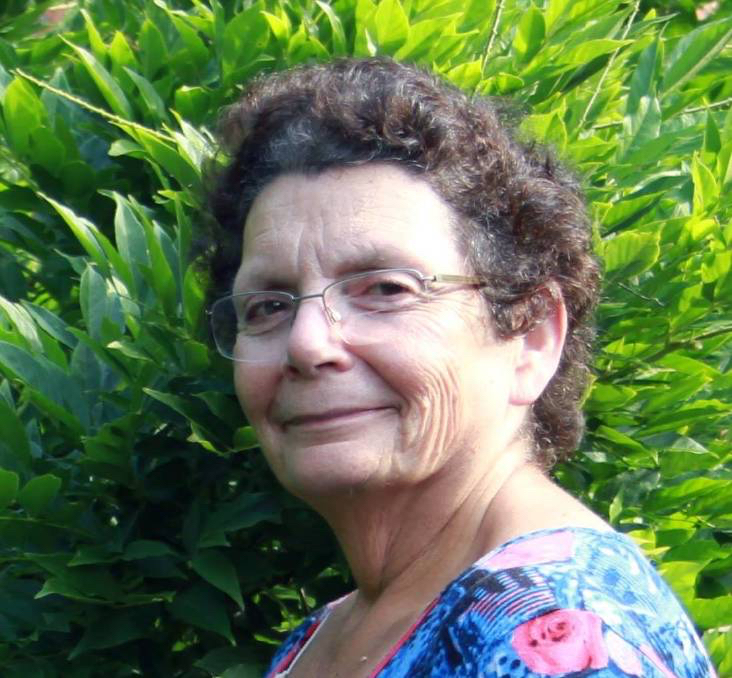Survivor earns Blue Mountains’ top honour
Holocaust survivor George Winston, 84, has been named the 2019 Blue Mountains Citizen of the Year by the city's mayor, Mark Greenhill.

ONLY 156 out of 76,904 residents of the Blue Mountains are Jewish according to the 2016 Census, but one of them has just received the region’s highest honour.
Holocaust survivor George Winston, 84, was named the 2019 Blue Mountains Citizen of the Year by the city’s mayor, Mark Greenhill, on Australia Day.
Greenhill said it was recognition of Winston’s outstanding contribution and tireless work for the Blue Mountains Refugee Support Group (BMRSG) ever since he helped found it in 2001, when he moved from Sydney to Katoomba.
“As a post-war refugee himself, George’s deep empathy and compassion have assisted many others into a challenging transition and new life in Australia,” Greenhill said.
“For many of us who live in the Blue Mountains, his humanitarian focus has provided us with a conduit to make our community a better place.”
Winston served for many years as BMRSG secretary, and still co-ordinates its fundraising activities. In 1985 he received an OAM for his work establishing Technical Aid to the Disabled.
Winston – born ‘Jerzy Weinberg’ in 1934 in Lwow in what was then Poland – said receiving the Blue Mountains’ top individual honour was “very moving at such a late stage in life”.
“I shall treasure this award for whatever time is left for me.”
In his 2013 memoir George’s Story compiled by Megan Wynne-Jones, Winston recalled how his world fell apart when the Nazis occupied eastern Poland in 1941, and how he and his parents, Eugene and Anna, were forced to live in the city’s ghetto with 14 other people in a single room.
They were able to find non-Jewish safe houses to live in for the remainder of 1941, and after several lucky near-death escapes, Eugene fled to the relative safety of Romania through a people-smuggling arrangement, with Anna and George to follow using false papers.
He wrote of remembering people smugglers carrying him across an icy river across the border, months of bombings in Bucharest, his parents obtaining an entry visa to Palestine, “being shot at by a sniper” during the first Arab-Israeli war, and moving to Australia with his parents in 1950.
In his memoir, Winston also reflected on his efforts to assist refugees with BMRSG, and campaigning against Australia’s “very cruel policies – the indefinite detention of refugees, the lack of compassion”.
“I really identified with the people, and it didn’t matter where they came from . . . it reminded me of what we’d been through.”
SHANE DESIATNIK
POLLAK RECOGNISED WITH PUBLIC SERVICE MEDAL
MAGDA Pollak’s 48 years of outstanding service to education in New South Wales, driven by her passion for improving outcomes for all students, has been recognised with a Public Service Medal.
It means a lot to the Blue Mountains resident – who taught for 19 years at Katoomba and Nepean high schools before commencing a senior role in 1989 at the NSW Department of Education’s head office, where she still works.
Pollack said when she first found out about receiving the honour, when a letter arrived in her mailbox, “I was absolutely amazed – my jaw dropped”.
“And I couldn’t have done it without my fabulous team.”
Since 2005, Pollack has managed the High Performance Unit where she oversees the placement processes of academically gifted and talented year 5 students into opportunity classes, and year 7 students into selective high schools – about 27,000 applications per year.
She has led the unit in streamlining application processes, identified strategies to increase the representation of Aboriginal students in opportunity classes and selective schools, and worked with the University of Western Sydney to identify better options for these gifted students.
The program has expanded from 33 to 46 selective high schools since 2010, and Pollack has been part of the team which implemented a virtual high school for gifted and talented students – the first of its kind in Australia.
She is currently working to roll out this initiative to rural and remote primary schools.
“When they [gifted students] get an opportunity like this, they really thrive,” Pollack said.
AJN STAFF



comments